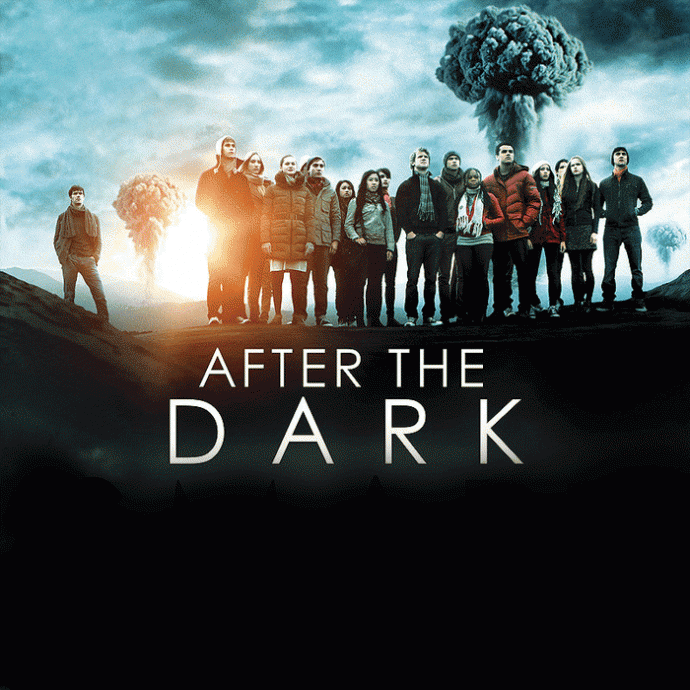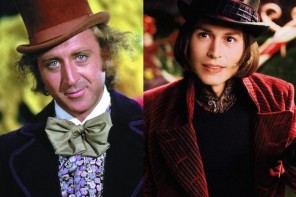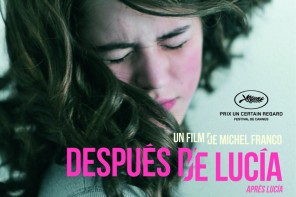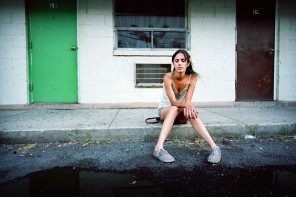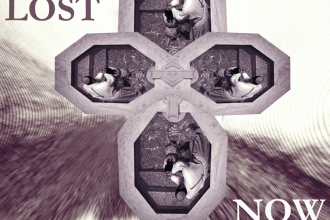Some of the most recurring themes in the movie industry explore post-apocalyptic scenarios like zombie attacks, deadly viruses and nuclear warfare. The newly released film ‘After the Dark’ present us with these same themes, except that here the apocalyptic scenario takes place in a classroom, where a group of students need to use their best philosophical analyses in order to survive a (hypothetical) global nuclear warfare. The film’s own answers are less than satisfactory, but to criticize it on this basis is to miss the point: the goal of philosophy after all is not to provide us with ready answers but to give us methods and tools which we can use in order to come up with answers of our own. In this sense, the film may be viewed as a living thought experiment, which is not limited to the movie theater but continues to exist as we actively engage with it.
Some of the most recurring themes in the movie industry concern post-apocalyptic scenarios and mankind’s place in them. One reason these stories captivate us is that they present us with extreme situations that suspend our ordinary judgments of right and wrong, or at least introduce unexpected variables that defy easy answers to a number of ethical questions. Movies like ‘The Road’ and ’28 Days Later’ often confront the viewer with difficult and important questions like: what does it mean to be human after human culture and society have been eradicated? What choices are we morally justified to make in order to stay alive? How do we conciliate individual and collective needs in these kinds of situations?
The newly released film ‘After the Dark’ present us with these same themes, except that here the apocalyptic scenario takes place in a classroom, in the form of a philosophical exercise assigned by the teacher: imagine that there’s just been a global nuclear warfare, which will leave deadly traces of radiation in the atmosphere for a year. Twenty people, played by the philosophy students, have access to a bunker with enough oxygen and supplies to keep ten people alive during this year. Each student is then assigned a random profession like ‘carpenter, ‘farmer’, ‘poet’, ‘opera singer’, ‘structural engineer’, ‘harpist’, and so on. The goal of the exercise is to be able to survive one year in the bunker and rebuild society in the post-apocalyptic world. This will require choosing, among the twenty people involved, who will be allowed into the bunker and who will stay behind and suffer a horrible death by radiation poisoning.
The fact that the film takes place in a philosophy class is of course not incidental, and makes it distinct from other apocalyptic films out there. For what filmmaker John Huddles wants to explore is not only mankind’s place in a post-apocalyptic world, but the role of philosophy in helping us cope with these sorts of extreme situations. How can philosophical analysis help us decide what kind of society we want to build in a post-apocalyptic world?
The film explores two distinct principles we may use in order to choose the inhabitants of our bunker. The first, proposed by the teacher, looks at the question from a purely practical point of view. That is to say, since we need to guarantee the survival of the species in a world where the basic infrastructure of society has been eradicated, the teacher claims an ideal bunker should be composed of only those who can actively contribute to this goal. This means allowing only ‘practical’ professionals like carpenters, farmers and structural engineers, to the detriment of ‘luxury’ professions like poets, harpists or fashion designers, as well as choosing those who can positively contribute to a healthy gene pool.
So what would happen if the experiment were carried out in this manner? Unsurprisingly, it doesn’t take the students very far. When the maxims of ‘breed and rebuild’ are given priority over basic human emotional and psychological needs, communal living soon becomes a nightmare, leading to suspicion, violence and generalized conflict. The students try twice to follow through the thought experiment in this manner, and some form of unresolved conflict always prevents them from attaining their goal.
But when all seems hopeless, a bright student named Petra intervenes and proposes a different approach, where human beings are not evaluated solely by their practical contribution to society. So rather than choosing people based on their value as builders or breeders, Petra reverses the choices and picks only those who were previously excluded: the poet, the harpist, the opera singer, the fashion designer, and so on.
As the thought experiment unfolds, a radically new form of communal living emerges. Night after night they imagine their life in the bunker as an endless celebration, where music, dance and poetry come together to give the students the time of their life. And for one year they laugh and live together as a group, creating and loving instead of building and breeding, until it is time to open the doors of the bunker and return to earth once again.
But then the teacher points to a fundamental problem in this approach: Petra has chosen only people with no practical skills whatsoever, so now that the provisions in the bunker are over, the group has no means of surviving on their own. Without the appropriate skills to grow, hunt or preserve food, the last survivors of the apocalypse will soon perish, making all their efforts in the bunker in vain.
But here Petra intervenes once again. Why, she asks, must the students accept that their role as survivors is to repopulate the earth? Perhaps what we should do in the event of a nuclear warfare is not to try to preserve life at all costs but to live our last moments together to the fullest. Seen in this perspective, the real lesson of the thought experiment is that the value of human life lies not in the survival of the species but in living an existentially rich life, which is all we can hope for in the face of an extreme situation like a post-apocalyptic world. It doesn’t matter if the students die after one year, because, as Petra says, “those who have lived an existentially rich life do not fear death: they summon it.”
And so the film ends in a hopeful tone, clearly showing the superiority of Petra’s philosophy over the teacher’s. In doing this, the filmmaker is also proposing his own vision of how the thought experiment should be carried out, based on Petra’s version of a post-apocalyptic world. But is Petra’s future really the paradisiac utopia it seems to be?
Let’s think about it: ten students, without a care in the world, who have the privilege of ‘ceasing the day’ for one year in a bunker only because every one of their practical needs has been provided for. If they are hungry, there is plenty of food in the fridge; if they are cold, they grab a blanket in the closet; and so on. The bunker even includes special luxury rooms dedicated to massage therapies and lovemaking! But as soon as the students are faced with the harsh reality of the outside world and need to fend for themselves, they must give up on life itself, simply because there is no one there to cook for them.
Is this the best we can do in a post-apocalyptic scenario? Do we really need others to clothe and feed us while we live our existentially rich lives? What about the lives of those who provide for our needs, who may not have the privilege of abandoning practical needs in order to ‘cease the day’? Instead of ignoring all practical concerns, shouldn’t we be focused on making these concerns meaningful again, instead of things to be dreaded and eventually discarded?
So let’s imagine a new version of the thought experiment: rather than leaving the ‘practical’ professionals to die, let’s take a bit of everything into the bunker: poets, engineers, farmers, singers, etc. Let’s then imagine that the poet would have something to teach to the engineer, who in turn could teach the singer one thing or another, and so on, so that in the end we would no longer be able to discern who is the farmer, the poet, the engineer or the singer. Together, these people could build a new kind of society, where ‘practical’ concerns like farming or carpentry would be lived with the same passion and intensity as poetry or music.
This version of the thought experiment goes beyond the simple dichotomy between Petra and the teacher explored in the film, but rather than taking this to be a limitation of the film, I think that here lies its greatest strength. For the film is, above all, a thought experiment, and although this particular thought experiment starts in a movie theater, all it requires in order to be continued are enquiring minds in search of a better world. In this sense, the film does not end at the movie theater but continues to be played every time we engage in this thought experiment. It continues to exist in this review and will continue to exist when you, the reader, carry out the thought experiment in your own way.
So if the film raises the question of how philosophy can help us come to terms with what it means to live an existentially rich life, the answer has already been given implicitly in the all along. The goal of philosophy is not to provide us with a final answer but to give us methods and tools which we can use in order to come up with answers of our own. It gives us thought experiments and methodological tools, and it is by looking at the ways we respond to these thought experiments that we can discover something about ourselves and the values that guide our choices, and revise and modify them as we see fit.
To end with an analogy, at some point in the film one of the students says that “philosophy is to real life what masturbation is to sex.” One way to interpret this claim is to say that philosophy is nothing but a solitary exercise, something that has little value when we are actually engaged with other people in the world. But I, as an avid defender of masturbation, must disagree: self-knowledge is a crucial step in making the most of our collective existence in the world. And both philosophy and masturbation have the power to give us that.

